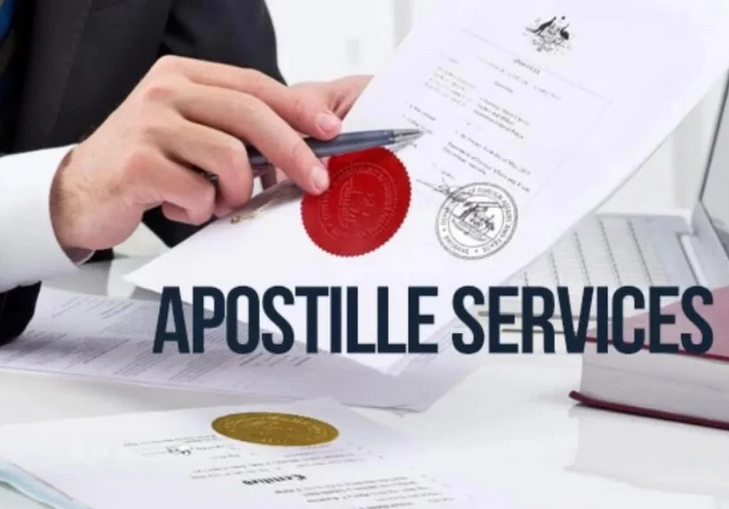Houston Apostille Specialists: Your Best Legalization Option
Houston Apostille Specialists: Your Best Legalization Option
Blog Article
Looking Into the Reasons Behind the Compulsory Demand of Apostille Accreditation for Legal Papers
In the realm of legal documentation, the obligatory requirement of apostille certification has come to be an essential facet that significantly influences the legitimacy and recognition of legal documents on a global scale. Understanding the reasoning behind this need includes delving right into the detailed internet of legal complexities, historic precedents, and global agreements that emphasize the value of apostille accreditation in today's interconnected world. By discovering the underlying factors behind this widespread need, a more clear photo emerges of why this apparently administrative process holds such immense value for governments, companies, and individuals alike.
Historic Evolution of Apostille Certification
How did the principle of apostille certification advance gradually to become an important part of global file recognition? The historical development of apostille qualification dates back to the very early 20th century. The need for a simplified approach of validating papers for usage across boundaries emerged as global trade and traveling increased. In reaction to this demand, the Hague Conference on Personal International Legislation presented the Apostille Convention in 1961. This international treaty established a structured procedure for certifying the authenticity of papers to be identified in participant countries.
Initially embraced by a few European nations, the Apostille Convention slowly got international acceptance due to its efficiency and effectiveness in confirming the legitimacy of official papers. Over the years, the convention's reach expanded as more nations signed up with, identifying the apostille as an universally accepted form of document authentication. Today, apostille accreditation has ended up being a common need for confirming lawful documents in global purchases, ensuring smooth communication and lawful proceedings between nations.
Simplifying International File Legalisation
The streamlining of international file legalisation treatments has dramatically enhanced effectiveness in cross-border purchases. Simplifying the process of legalizing papers for global usage has ended up being critical in facilitating swift and seamless deals in between nations. Among the key mechanisms that have added to this simplification is the adoption of the Apostille Convention, which supplies a standard approach for validating the credibility of papers throughout getting involved nations.
By sticking to the Apostille requirements, countries consent to acknowledge each other's public papers as legitimate without the need for further legalization. This eliminates the lengthy and typically troublesome procedure of several verifications by different authorities, saving time and resources for businesses and individuals involved in global tasks.

Guaranteeing Document Credibility and Credibility
To make certain the authenticity and validity of lawful records in global deals, stringent confirmation processes are crucial. By calling for apostille qualification for legal documents, authorities intend to verify the beginning of records and confirm the trademarks of people involved.
Moreover, validating the credibility of lawful papers with apostille accreditation improves count on and confidence among events involving in worldwide deals. Ultimately, by supporting strict confirmation requirements, apostille accreditation contributes to a much more transparent and secure worldwide legal framework.

Helping With Cross-Border Legal Recognition
In the world of global deals, the apostille accreditation not only makes certain the credibility and credibility of legal documents but also plays a pivotal role in promoting cross-border lawful recognition (Houston Apostille). When lawful documents bear an apostille certification, they are easily accepted by international authorities without the requirement for further confirmation. This structured process expedites the acknowledgment of files in various countries, advertising effectiveness and decreasing bureaucratic obstacles in legal issues that transcend nationwide limits
Promoting cross-border legal recognition with apostille accreditation promotes count on and confidence in the credibility of records traded between countries. By adhering to the standards set forth by the Apostille Convention, nations agree to honor the apostille read here seals attached to files from various other member countries, therefore simplifying the process of legal recognition across borders.
Compliance With International Treaty Criteria
Compliance with worldwide treaty requirements Find Out More is essential for guaranteeing the uniform application of legal regulations across participating nations. The Apostille Convention, developed in 1961, lays out the needs for the approval of public papers amongst member countries. By adhering to the criteria stated in this treaty, countries dedicate to acknowledging the validity of each other's certification without the requirement for additional authentication - Houston Apostille. This mutual approval simplifies the procedure of cross-border paper acknowledgment, promoting efficiency and reducing bureaucratic difficulties.
The Apostille accreditation, as mandated by the treaty, serves as a warranty of authenticity for documents such as birth certifications, marriage licenses, court judgments, and notarized acts. This standard technique assists avoid fraud and makes certain that lawful papers stemming from one participant country are readily approved in one more. By abiding with international treaty standards, countries demonstrate their dedication to maintaining the concepts of transparency, depend on, and cooperation in legal issues on an international scale.
Final Thought

In the realm of legal paperwork, the required need of apostille certification has ended up being a necessary facet that significantly impacts the credibility and recognition of legal papers on a worldwide scale. Today, apostille accreditation has actually ended up being anonymous a common need for confirming lawful documents in global deals, making certain smooth interaction and lawful procedures between nations.
Furthermore, confirming the authenticity of legal documents through apostille certification enhances trust and self-confidence amongst events involving in worldwide transactions.In the realm of global purchases, the apostille qualification not just makes sure the authenticity and credibility of lawful papers however likewise plays a critical role in facilitating cross-border lawful recognition. By adhering to the criteria established forth by the Apostille Convention, nations concur to recognize the apostille seals attached to documents from various other participant countries, thus simplifying the procedure of legal recognition throughout borders.
Report this page